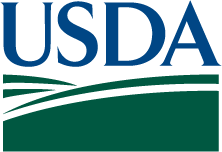
Natural Resources
Conservation Service
Ecological site F057XY016MN
Flood Plain Forest
Last updated: 10/03/2023
Accessed: 02/28/2026
General information
Provisional. A provisional ecological site description has undergone quality control and quality assurance review. It contains a working state and transition model and enough information to identify the ecological site.
MLRA notes
Major Land Resource Area (MLRA): 057X–Northern Minnesota Gray Drift
The Northern Minnesota Gray Drift (57) is located within the Northern Lakes Forest and Forage Region. This area is entirely in north-central Minnesota and makes up about 9,785 square miles (Figure 1). The entire area is covered by Wisconsin-age glacial drift. The glacial deposits are from four major ice lobes-Des Moines, Rainy, Superior, and Wadena. The landscape developed through a series of glaciations and the subsequent retreating and wasting of the ice sheets, which resulted in a complex pattern of moraines, outwash plains, drumlins, lake plains and drainages. Lakes, ponds and marshes are common. The thickness of the glacial till ranges from 90 to 185 meters. Some areas of these deposits are overlain by outwash or lacustrine sediments. Some depressional areas have an accumulation of organic matter. The organic deposits are more than 2.5meters thick in some areas. Elevation ranges from 300 to 500 meters across the area. (USDA-NRCS 2006)
The dominant soil orders in this MLRA are Alfisols, Entisols, and Histisols, with some Mollisols in the westernmost part of the area. The soils in the area have a frigid soil temperature regime; aquic or udic soil moisture regime, and mixed mineralogy. Their natural drainage class is related to landscape position. In general, the Alfisols formed in till on moraines, Entisols formed in outwash on moraines and outwash plains, and Histosols formed in organic material over outwash or till on moraines or outwash plains. (USDA-NRCS 2006)
Classification relationships
Major Land Resource Area (MLRA): Northern Minnesota Gray Drift (57) (USDA Handbook 296, 2006)
USFS Subregions: Northern Minnesota Drift & Lake Plain Section (212N); Chippewa Plains Subsection (212Na), Pine Moraines & Outwash Plains Subsections (212Nc), St. Louis Moraines Subsection (212Nb); Minnesota & NE Iowa Morainal Section (222M); Hardwood Hills Subsection (222Ma); Northern Superior Uplands Section (212L); Nashwauk Uplands Subsection (212Lc); Northern Minnesota & Ontario Peatlands Section (212M); Littlefork-Vermillion Uplands Subsection (212Ma) (Cleland et al. 2007).
US EPA Level IV Ecoregion: Itasca and St. Louis Moraines (50q); Chippewa Plains (50r); Nashwauk/Marcell Moraines and Uplands (50s); Alexandria Moraines and Detroit Lakes Outwash Plain (51j); McGrath Till Plain and Drumlins (51k); Wadena/Todd Drumlins and Osakis Till Plain (51l)(U.S. Environmental Protection Agency, 2013)
Ecological site concept
Flood Plain Forest are widespread throughout MLRA 57, and are present on occasionally or annually flooded sites on terraces and floodplains of streams and rivers. Soils consist of stratified alluvium which vary widely from silty to fine sandy soils on the occasionally flooded river terraces to coarser textured alluvium on the active floodplain sites.
Associated sites
| F057XY015MN |
Wet Mixed Forest These sites occur on footslope and toeslope hillslope positions, drainageways surrounded by uplands or on the edge of uplands grading to very poorly drained peatland soils. These sites typically exist on loamy and occasionally sandy moraines and till plains. |
|---|---|
| F057XY002MN |
Wet Depressional Forest These sites occur in shallow wetland basins, closed depressions and along drainage ways, and are generally in narrow transition zones between mineral uplands and peatlands. Soil surface layers are typically mucky-modified surface textures or muck less than 8” thick over variable parent materials. |
Table 1. Dominant plant species
| Tree |
(1) Fraxinus nigra |
|---|---|
| Shrub |
(1) Prunus virginiana |
| Herbaceous |
(1) Laportea canadensis |
Click on box and path labels to scroll to the respective text.
Ecosystem states
| T1A | - | Mechanical removing of timber. |
|---|